Information Revolution
Doing Business
In the last 40 years, Tennessee has become more and more a part of a national, and even worldwide economy.
The globalization of business and new technology offers both advantages and difficulties for businesses.
On one hand, businesses can reach new customers through the internet. On the other, industries must now compete against companies outside the U.S. who may be able to produce the same products for a lower price.
On one hand, businesses can reach new customers through the internet. On the other, industries must now compete against companies outside the U.S. who may be able to produce the same products for a lower price.
Many businesses have positioned themselves to take advantage of the service economy. In other words they offer services to customers rather than products.
During this era, state and local government and leaders in the business community have joined together to encourage job growth in Tennessee.
Tennessee leaders have worked hard to attract businesses and offer low tax rates. The state can offer increasingly well-educated and skilled workers. In addition, Tennessee is a right-to-work state where employees cannot be required to join a particular union in order to be employed at that company.
Tennessee leaders have worked hard to attract businesses and offer low tax rates. The state can offer increasingly well-educated and skilled workers. In addition, Tennessee is a right-to-work state where employees cannot be required to join a particular union in order to be employed at that company.
The state’s economic growth, while not without some problems, has improved many Tennesseans’ standard of living. The amount of money earned by workers has increased significantly.
The number of Tennesseans living in poverty has decreased from 39 percent during the 1950s to about 16 percent by 1990. Increased job opportunities during these years benefited many Tennesseans.
The number of Tennesseans living in poverty has decreased from 39 percent during the 1950s to about 16 percent by 1990. Increased job opportunities during these years benefited many Tennesseans.
Agriculture no longer plays the dominant role in Tennessee’s economy that it once did. But, with the advent of mechanization and technology, farms in the state produce more money than they did in the past.
Finally, as concerns about global warming continue to grow, businesses both try to produce less emissions and at the same time take advantage of business opportunities.
To see an exhibit about work, click here.
Picture Credits:
- Photograph showing pollution on the Tennessee River. This photo was taken in May 2009 by photographer “Reverend Andy.” It shows pollution resulting from the coal ash spill from the Kingston Fossil Plant in Kingston, Tennessee in 2008. Coal ash is a residue generated from the combustion of coal, and it is toxic. Flickr.com.
- Photograph showing a U. S. Army internet conference. This photo was taken November 12, 2008 at the Forward Operating Base Falcon in Iraq by photographer "Army.mil." It shows an Iraqi boy from Baghdad speaking to American students at Fort Hood Army Base in Texas. Flickr.com.
- Photograph of a FedEx Express Airplane. It shows a Fedex airplane, model MD-11, about to land at a harbor in Hong Kong. Fedex Corporation.
- Photograph entitled, “First Saturn.” This photograph was provided by “Saturn on Flickr” and taken in July 1990 at the manufacturing plant in Spring Hill, Tennessee. It shows numerous employees cheering as the first completed Saturn car rolls off the assembly line. Flickr.com.
- Photograph showing traffic on I-65 in Tennessee. This photograph was taken in September of 1972. United States National Archives.
- Photograph showing a Tennessee farm. This photograph was taken in October 2008 in Charlotte, Tennessee, by Allison Stillwell. It shows a corn field and a tobacco barn. Flickr.com
- Photograph of Summit Medical Center. This hospital In Hermitage, Tennessee, was built by the Tennessee-based business, Healthcare Corporation of American (HCA). Tristar Health System.
Information Revolution >> Information Age >> Doing Business >>
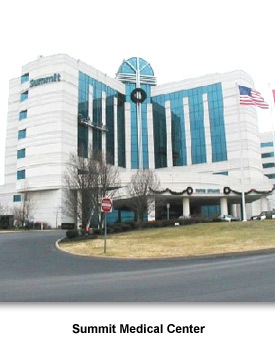
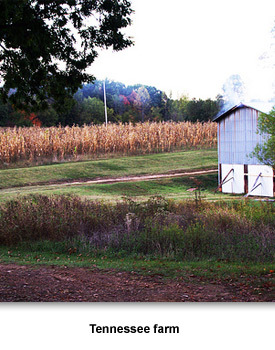
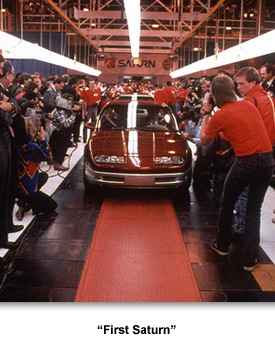
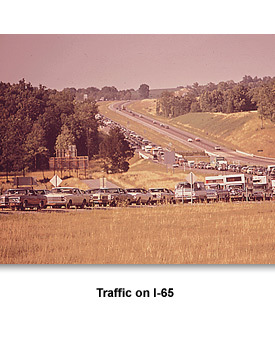
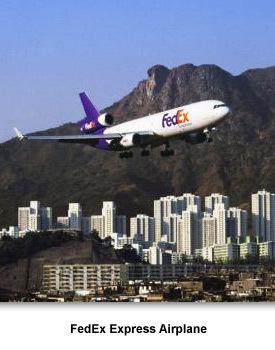
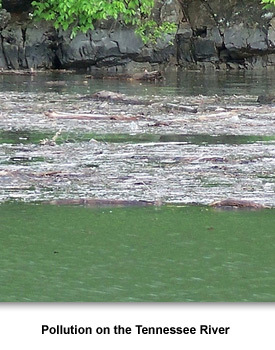
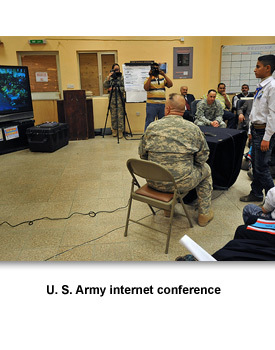
 Sponsored by: National Endowment for the Humanities
Sponsored by: National Endowment for the Humanities